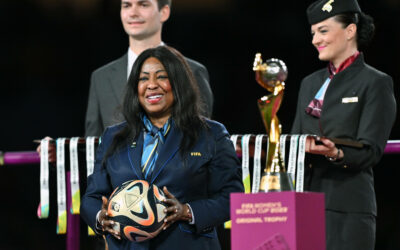
The deal transfers control of the club from the Lansdown family, who previously managed operations through the Bristol Sport Group. While the Lansdowns will remain involved as minority shareholders, the day-to-day strategy and long-term vision will now be guided by Mercury13. This marks the group’s second major acquisition in Europe, following their purchase of Como Women in Italy in 2024, and signals their determination to build a network of competitive women’s football clubs.
Mercury13 was founded by entrepreneur Mario Malavé and sports executive Victoire Cogevina Reynal, with the goal of investing $100 million across women’s football in Europe and Latin America. The group has attracted international star power, including former Spain midfielder Juan Mata and Italy’s World Cup-winning defender Giorgio Chiellini, who are both investors. Their involvement adds visibility and credibility to a project designed to professionalize and elevate women’s football on a global scale.
What the Deal Means for Women’s Football
For Mercury13, Bristol City Women offered the right mix of history, infrastructure, and potential. Despite being relegated from the Women’s Super League in 2024, the club retains a strong reputation within English football. Its home fixtures at Ashton Gate Stadium regularly attract passionate crowds, while the backing of Bristol Sport ensures access to quality facilities. Investors believe that with targeted resources and strategic leadership, the club can return to the WSL and thrive as part of England’s growing women’s football movement.
“This is a team with enormous potential,” Malavé said following the announcement. “Our role is to provide the investment and long-term vision that will allow Bristol City Women to compete at the highest level again and inspire the next generation of fans.”
The acquisition is also significant for the wider women’s game in England. While foreign ownership and multi-club investment are common in men’s football, such dedicated attention to women’s teams is relatively new. Analysts believe Mercury13’s model could set an important precedent by showing that women’s clubs can attract specialized, independent ownership rather than existing only as extensions of men’s organizations. Sports business expert Karen Ellison described the deal as a “turning point,” suggesting it could encourage further investment across both the Women’s Super League and the Championship.
Challenges Ahead
Challenges remain. On the pitch, Bristol City Women will need to rebuild after relegation, with promotion to the WSL as the immediate objective. Off the pitch, Mercury13 must strike a balance between modernizing the club and respecting its traditions. Fans, who have supported the women’s team through highs and lows, will expect transparency and genuine commitment rather than a purely financial play. Long-term sustainability will also be essential. While initial investment is important, success will ultimately depend on developing reliable revenue streams from ticket sales, sponsorship deals, and community engagement.
Head coach Lauren Smith is expected to remain in charge, providing continuity as new resources are directed into the playing squad and backroom staff. Early indications suggest Mercury13 will strengthen recruitment efforts and improve player support structures, reflecting their strategy of building competitive, professional environments across all their clubs.
For supporters in Bristol, the deal brings a sense of cautious optimism. Many see it as an opportunity to elevate the women’s game in the city, giving players the resources to compete at the highest level and offering fans a more professional and engaging matchday experience. Others stress the importance of keeping the club’s identity intact while embracing international investment.
“Women’s football is at a tipping point,” Cogevina Reynal said. “By investing in clubs like Bristol City Women, we are not only helping them grow but also contributing to the global evolution of the sport. This is about building a sustainable future, not just chasing short-term success.”
As the 2025/26 season begins, Bristol City Women will step onto the pitch with renewed ambition. Whether they achieve immediate promotion or focus on gradual rebuilding, the partnership with Mercury13 positions the club as a key player in shaping the next phase of women’s football in England. For the sport as a whole, the acquisition signals that specialized investment groups are ready to take women’s football seriously — and that its commercial and cultural potential is only beginning to be realized.
This article was created with the assistance of AI and has been reviewed and edited by our editorial team.


